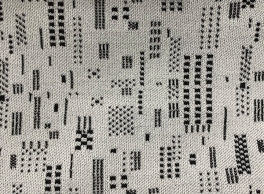Raw Fabric (Jacquard)
Product Introduction
Customization is a common practice in the textile industry, as it allows customers to have more control over the final product and tailor it to their specific needs and preferences. In this case, the company is offering customization services for both pattern design and yarn selection.
If a customer does not like the existing pattern, they can provide their own design or work with the company's designers to create a new pattern that meets their requirements. This can be especially useful for customers who have a specific vision or brand identity in mind.
Additionally, the company can customize the yarn used in the fabric. This means that customers can choose the type of yarn, the colors used, and even the texture of the yarn to create a unique and personalized fabric.
Overall, offering customization services allows the company to better meet the needs of its customers and provide a higher level of customer satisfaction. It also demonstrates the company's flexibility and willingness to work with customers to create a product that meets their specific needs.




















